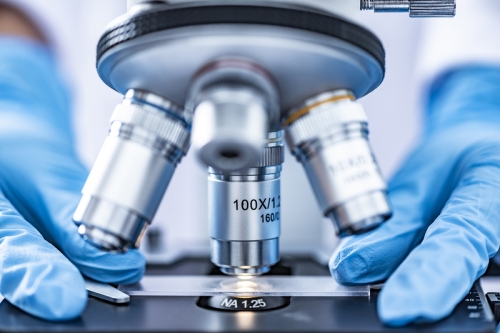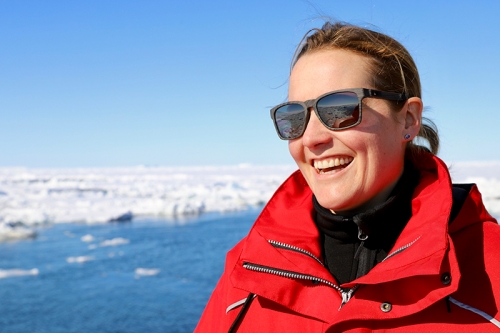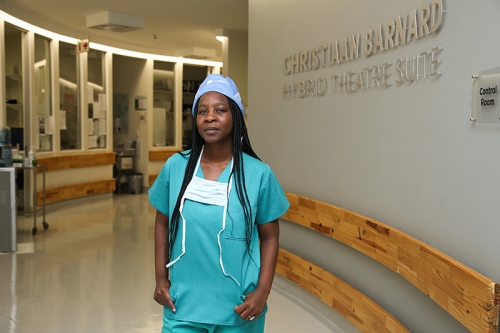UCT’s two 2020 WEF Young Scientists


Photo Chokniti Khongchum, Pixabay
Every year, the World Economic Forum (WEF) selects an elite group of researchers under the age of 40 to participate in their Young Scientists programme. This year, the University of Cape Town (UCT) is represented by two brilliant women scientists.
Dr Sarah Fawcett, a senior lecturer in the Department of Oceanography, and Professor Salome Maswime, head of Global Surgery, will be joining young scientists from across the globe on a three-year journey of growth and impact.
The Young Scientists have been selected on the basis of their contribution to advancing the frontiers of science in the areas of health, sustainability, inclusiveness and equity.
Under normal circumstances, the new cohort would have gathered at the Annual Meeting of the New Champions in the People’s Republic of China for a curated community programme. However, due to COVID-19, this has been postponed until further notice. Instead, the Young Scientists made each other’s virtual acquaintance during an online on-boarding programme last week.

Dr Sarah Fawcett. Photo Supplied.
Dr Sarah Fawcett, Department of Oceanography
After completing her PhD in geoscience at Princeton University, Fawcett decided to return to South Africa and further her academic career in her country of birth.
In 2015, she was appointed as a lecturer in UCT’s Department of Oceanography. Since then, Fawcett has spent the four years establishing a strong and diverse research group and raising funds to build a new marine biogeochemistry lab at UCT, which is in its final stages of completion.
Fawcett’s research seeks to understand the connections between the components of Earth’s climate system, as well as the impacts of human activities on marine environments. Since stable isotopes provide a powerful tool for investigating these links, having access to a method for analysing nitrogen isotopes in water and small organic samples – called the denitrifier method – is central to her lab.
The denitrifier method is the global standard for measuring nitrate isotopes and nitrogen isotopes in unconventional samples and is widely applied across disciplines. However, it is not currently available in Africa, meaning that Fawcett’s lab will be a first for the continent.
“My ultimate goal is to catalyse sustainable transformation in a white- and male-dominated field and support the development of womxn scientific leaders and role-models.”
Fawcett emphasises that the goal of this new laboratory is to facilitate high-quality, high-impact research and train the next generation of African scientists.
“I am committed to shifting the center of gravity with regards to perceived scientific excellence (from the north) by conducting research of significant relevance to Africa in an African laboratory using increasingly high-resolution and innovative techniques that also push the frontiers of global knowledge,” she explains.
Fawcett’s commitment to the development of African scientists is what drives her work. She is especially passionate about improving the retention, success and visibility of womxn in science, particularly black womxn.
One of the projects she is currently involved with is ‘Ocean Womxn: Sea(ing) a change in the demographics of oceanographic research in South Africa’. The UCT-funded programme provides talented black womxn students with financial support as well as research and career development opportunities in the ocean sciences.
For Fawcett, being part of the Class of 2020 World Economic Forum Young Scientists community holds promise for gaining deeper and broader insight into global interventions for overcoming the barriers to sustained transformation, but also to contribute meaningfully to ongoing conversations around this.
“My ultimate goal is to catalyse sustainable transformation in a white- and male-dominated field and support the development of womxn scientific leaders and role-models,” she says. “I am hopeful that my time as a Young Scientist will contribute to this effort.”

Professor Salome Maswime. Photo Je'nine May.
Professor Salome Maswime, head of Global Surgery
If the goal of Dr Salome Maswime’s research could be summed up in less than 10 words, it would be to ensure that all African mothers and their babies survive childbirth.
Despite the leaps and bounds by which gynaecology and obstetrics have improved over the past century, maternal mortality rates are still “unacceptably high”, according to the World Health Organization (WHO). A report released by the WHO in September 2019 revealed that, during 2017, 295 000 women died during and following pregnancy and childbirth. Sub-Saharan Africa alone accounted for roughly two-thirds (196 000) of these deaths.
“I have a particular passion for finding African scientific solutions for the challenges we face.”
“My key research area is caesarean sections and interventions to reduce maternal mortality in African women,” says Maswime. “This is also a key part of global surgery, as caesarean sections are the leading surgical operation in the world.”
Maswime’s other research area is stillbirths: understanding their placental causes and the foetal inflammatory response related to infections like HIV. Notably, she is also currently co-principal investigator on a national study looking at COVID-19 in pregnancy.
While Maswime first fell in love with her field in the labour ward of Chris Hani Baragwanath Academic Hospital in Johannesburg, her position as head of Global Surgery at UCT has led her to working across disciplines.
“My work involves engaging with policy makers, investors, non-governmental organisations and communities to find ways of improving surgical outcomes,” she explains.
Her active involvement in research that has an impact across disciplines has been recognised in various ways over the years. In 2017, she was acknowledged as Trailblazer and Young Achiever by the President of South Africa. And in 2018, she was awarded the Discovery Foundation Mass General Global Health (MGH) Fellowship, which allowed her to spend a year as a research fellow with the Massachusetts General Hospital and Harvard Medical School in the United States.
Now, a year after her appointment at UCT, she is being included in the Class of 2020 World Economic Forum Young Scientists community: another feather in Maswime’s cap.
“It is a huge recognition to be acknowledged by a global institution with this stature,” she says. “I have a particular passion for finding African scientific solutions for the challenges we face, and I think being part of this community will give me an opportunity to engage with a range of policymakers, stakeholders and important leaders in Africa, and across the world.”
Story: Nadia Krige
